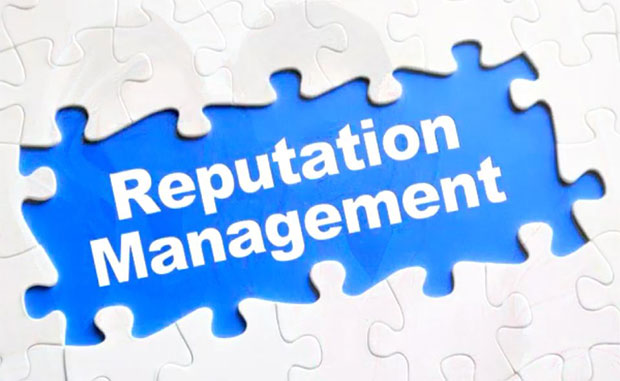Building a good reputation online is very important for all businesses, even if your business does not sell online. In today’s internet age, just about everyone knows about online reviews. Negative online reviews can happen at any time and may or may not even be true. So how does a company establish and maintain a good reputation online? The answer is that prevention is the best medicine along with maintaining best practices, of course.

Just like an apple a day keeps the doctor away, content keeps the negative comments away; or at least maintains the positive balance of information and reviews you want to have online about your business. One of the important things to remember about reputation management and customer reviews is that other customers do not want to see 100% positive comments about your company. That makes it appear fake and contrived; the general public knows that no business can please all the people all the time. In fact, people looking up information about your company online just want to see that you addressed any negative comments or complaints, fixed the problem, and that you care about your customers.
How to Build a Positive Reputation Online

Building a positive reputation online is the best way to keep a positive balance of information out there in your favour. This is done by cultivating content and consistently adding new content in the form of social media posts, blog posts, customer reviews, and website content (if you have a website).
Step #1
The first step is to set up social media pages on all available channels. Fully fill out all of the profile information. This will not only give potential customers all the information they need about your business, but keyword rich social media profiles rank well in the search engines and ensure that these sites will show up in the search results rather than something negative.
Step #2
Claim all online listings on review sites and local listing pages. These can include: Yelp, Yellow Pages Online, Google Plus (a combination of a social channel and a local listing page), Yahoo Local, Bing Local, and any other industry specific or local specific sites that might be appropriate for your business. Use the same tactics for completely filling out the profiles on these sites with the same goal in mind as with the social media networks.
Step #3
Ask for customer reviews. Understand that you might get some negative comments, but overall the reviews will be positive since your customers overall must be happy in order for you to still be in business. Negative reviews could address areas that you need to improve, but they are also an opportunity to publicly show others that you solve problems, listen to customers, and care about them.
Step #4
Start blogging. Setting up a blog is free. It can be encorporated into your website or a stand-alone blog. Consistently update your blog and write about your company, your products or services, your industry, your local area, pretty much anything that has to do with your company. Filling in valuable information will not only help your customers learn about your company, but gets more content about your company and your brand out there on the internet.
Step #5
This step applies if you have a website. Be sure to continually add new content to your website. This not only helps with reputation management, but it will help with search engine rankings. If you have a website, you should also think about exploring the idea of adding online reviews to your website. This helps you maintain control of customer reviews and also benefit in the search rankings from all the user generated content that is added to your site by customers.
Step #6
Become an authority. Write articles on your subject whether it is products or services. If you establish yourself and your business as a trusted authority in your area of expertise, this will help your reputation as well as your rankings too. Writing articles that are published elsewhere online will also add to your clout and enhance your reputation.
Summary and Conclusion
Reputation management is one of the things that your company should be thinking about before a problem happens, not afterwards. Hopefully you will never need to deal with a reputation disaster, but preparing for it will actually help your company’s branding and search engine rankings, making it easier for customers to find you online. Instead of stressing out and needing customised stress toys, make sure that in addition to the reputation management steps outlined above that you employ best practices, listen to your customers’ needs, and train your staff to follow your established company protocols.
The Importance of Online Reputation Management,





Ian
Jul 08. 2013
I always found reviews/testimonials are a great way of promoting a business, even not so good reviews are good as it tends to raise alarm bells when people see hundreds of extremely positive reviews without any negative.
AndresJames
Nov 02. 2013
Do you need Online Business Consulting? Online Business Consulting for your business need can be managed
TechCrates
Nov 02. 2013
Thanks Andres! That’s the working part of a business